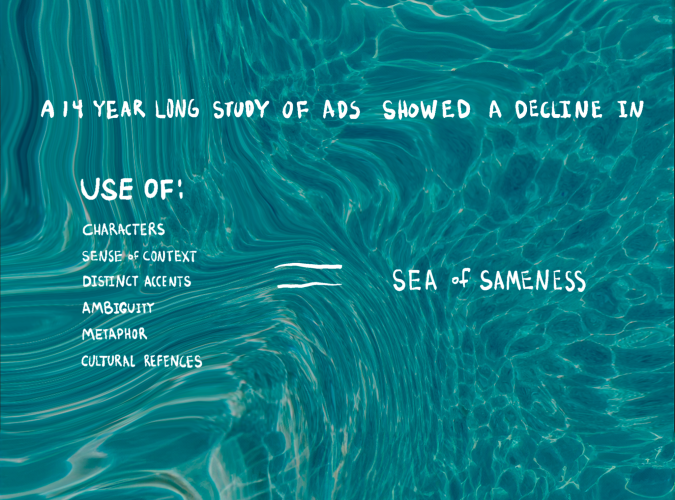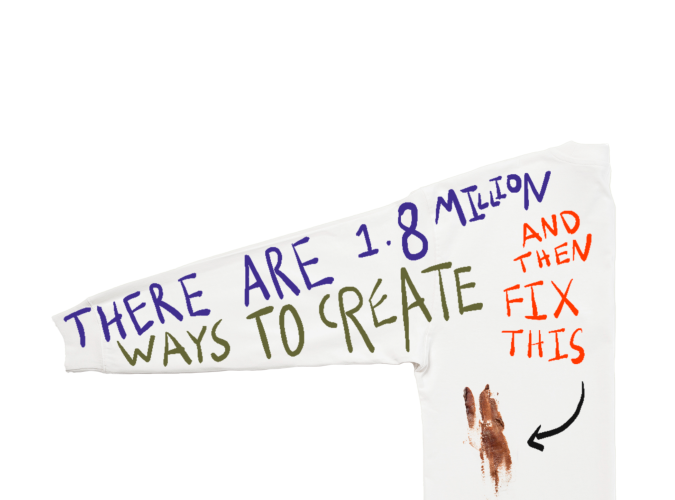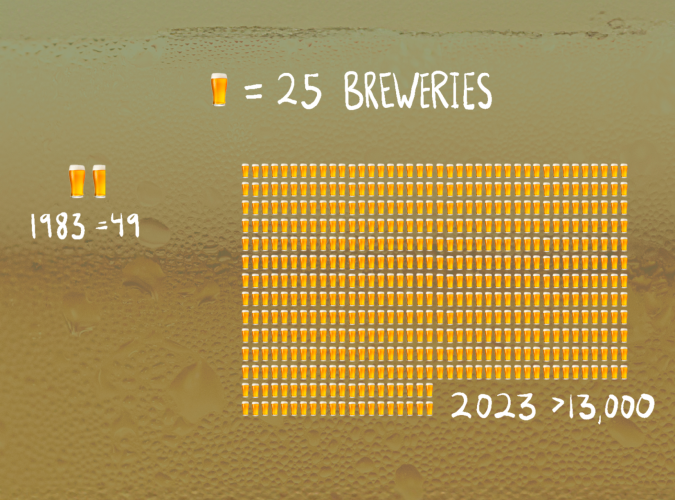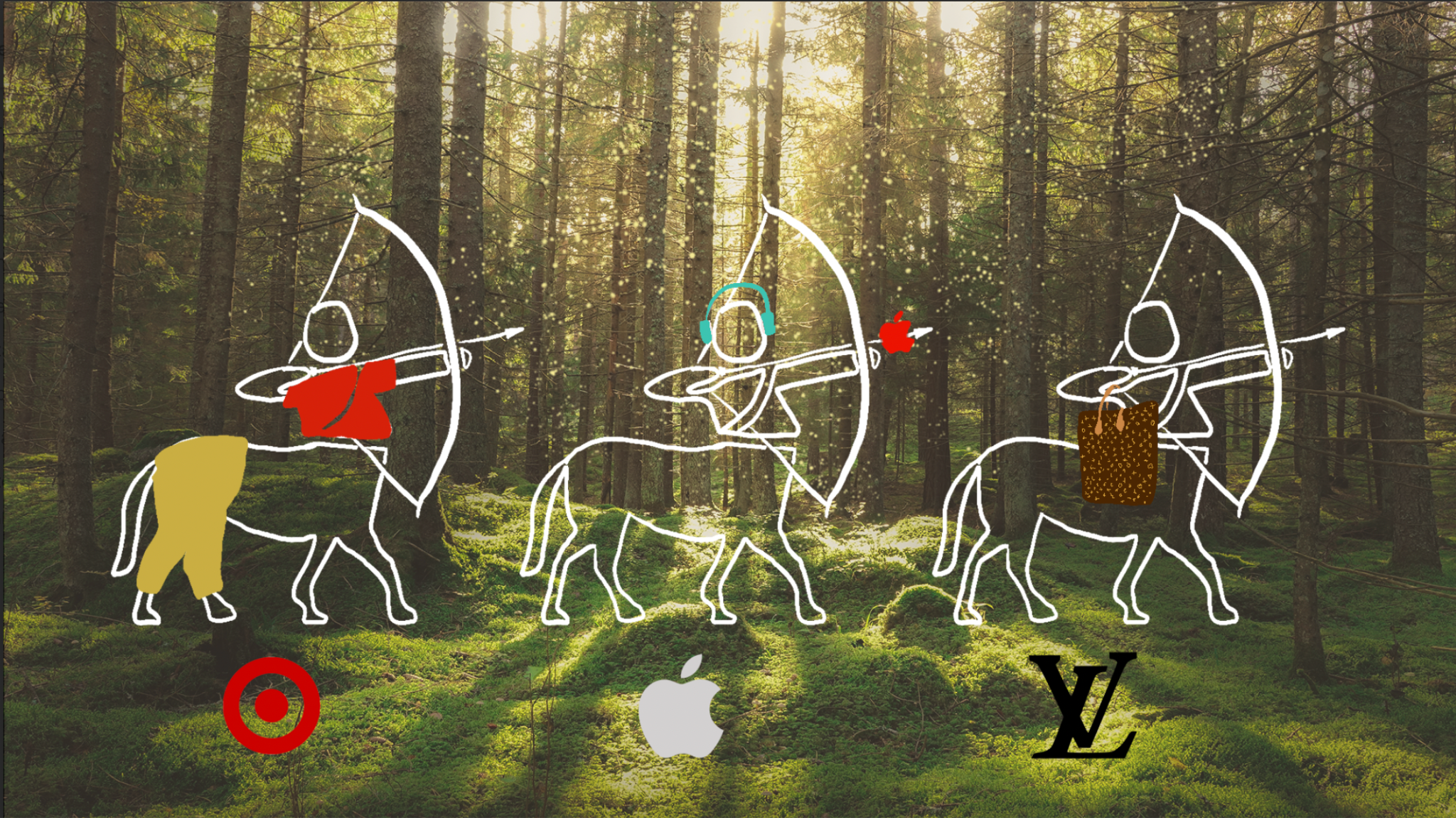A human on its own is not that interesting. A lumpy sack of flesh, water, and electricity with a side of consciousness. Yawn.
A horse is also not that interesting on its own. Beautiful and majestic, yes, but on the whole, it’s not too complex of a creature.
Combine the two, and you get a centaur: A man-horse mythical being of significant sentience that is dripping with intrigue. How are they born? Where does their physiology start and end? How does it wear pants?
Creativity has long involved juxtaposing two seemingly unrelated things and combining them in novel ways. It's the brain-sword of our industry; how brands bridge the gap between what consumers already know and relate to and what will strike them in a novel way. But when we talk about combining two seemingly unrelated things, we're not suggesting something like painting a submarine in peanut butter and calling it an idea.
We believe there’s a centaur within every brand that will inform how they act, and it behooves them to find it.
In an analysis of 620 ads over 14 years, there has been a decline in the use of characters, sense of context, distinct accents, ambiguity, metaphor, cultural references, and more. The result? A sea of sameness.

As proof, there are 9,000 brands of laundry detergent. There are 200 chocolate companies with thousands of brands. If you got a stain on your white shirt, there are 1.8 million combinations of the brand that caused the stain and the brand that cleaned it.
What’s a consumer to do? The rise in parity products has led to an F&B arms race that’s memorable for marketers but forgettable to consumers.
What’s a brand to do? Embrace creative tension. Become a centaur.

In 1983, there were 49 breweries. Now there are over 13,000. So when Lake Louie Brewing asked SixSpeed to create a new brand identity to stand out on a shelf with literally thousands of products, we set out to find some tension.
Turns out the brand was built on a foundation of skinny dipping. A combination of frivolous fun mashed with serious craft to create a splash consumers could enjoy. The logo became a character. We didn’t show a picture of a lake. Like it or not, people noticed.

We did it with Club Car Cru, the centaur of EVs. Cru is what you’d get if a golf cart and a pontoon had a baby. But we turned micromobility on its head to introduce the idea of exploration into detourism: taking a closer look at the things you don’t notice in your own neighborhood.
The tension of an explorer who is afraid to go too far from their house is interesting. Anyone can aspire to explore the Congo. It’s harder to take a second look at the things you see every day.
Heck, even a brand like Sun Bum disrupted the sunscreen industry that was content with talking about water solubility, broad spectrum applications, and mistiness of their sprays.
They took a quality product and mashed up American surf culture, Scandinavian furniture, and Japanese streetwear to make an iconic brand that consumers love.
Most marketers are familiar with brand essence. Try to find more than one that feels diametrically opposed, but make you categorically interesting.
What are two true things about your brand and how can they play together?

Pitching any of these centaurs without their associated brand would feel absurd. But they know who they are, and they take a stand for it.
So when you’re sitting in a boardroom, obsessing over marginal gains over your competitors, think about what actually makes you different. What’s actually ownable? It might be weird, it might feel mundane, but it has to be true.
After all, we know your brand is a person trying to connect and talk to its consumers.